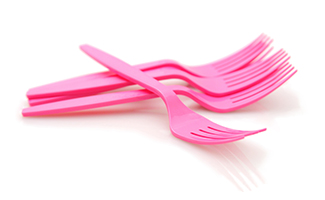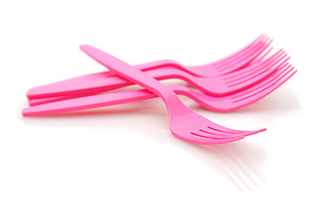Plastic’s life cycle must be managed better

The European Commission published the first EU strategy on plastics at the beginning of this year, and it is currently under discussion in Parliament.
“The aim is to save resources by using them more efficiently and keeping the materials in circulation for as long as possible,” says Anneli Jäätteenmäki, MEP and member of the Committee on the Environment.
She acts as a negotiator in hearings at Parliament. According to Jäätteenmäki, the use of plastic should be better managed throughout the value chain. The strategy seeks to enhance the recovery and recycling of plastics and product design, which promotes the reuse of plastic products, for example. It is also important to create a suitable environment for new innovation and investment in the circular economy.
Just over ten years to go
In the EU, 60% of plastic waste comes from plastic packaging. Jäätteenmäki points out that only 30% of the 26 million tonnes of plastic waste produced in the EU every year is recycled. She points out that this is money wasted: 95% of the material’s value disappears from the economy.
The objective is for all plastic packaging sold in the EU to be designed for recycling by 2030. In May, the EU adopted ambitious waste management and recycling rules. According to the new material-specific collection requirements, half of plastic packaging waste should be recycled in 2025, and the target will then reach 55% in 2030.
“Stricter recycling requirements mean that collection needs to be streamlined. Finland is better prepared for this than many other European countries,” believes Jäätteenmäki.
According to the Commission’s disposable plastic proposal, 90% of plastic bottles will have to be collected by means of a deposit return system and extended producer responsibility by 2025. Finland should have no problem achieving this goal as the bottle deposit return scheme already works very well.
Producer responsibility scope may expand
The Waste Framework Directive and the Finnish Waste Act have already expanded the scope of producer responsibility. The responsibility is country-specific, i.e. its practical implementation is the responsibility of each Member State. According to Jäätteenmäki, it is possible that the scope of producer responsibility will expand further in the future.
“As the waste package has just been approved, the current Commission is unlikely to propose anything new in this matter.”
Producer responsibility for packaging applies to Finnish companies that pack products in Finland or import packed products to Finland and have a turnover of at least one million euros.
Good riddance to disposable plastic
Regulating the use of plastic aims to reduce the amount of disposable plastic in circulation and a total ban has even been proposed. In the Commission’s proposal, disposable products include plastic cutlery and dishes, straws, drink stirrers, drinking cups and covers, cotton buds and sticks for balloons as well as some food packaging.
“Packaging prevents food from going off. Plastics will continue to play a significant role, but their life cycle needs to be better managed. The Commission’s proposal on disposable plastic aims at reducing harmful plastic rubbish and not totally banning plastics.
On a global scale, disposable plastics are a huge problem. If they were banned entirely, product design would gain momentum and the secondary raw material market would also develop. Jäätteenmäki believes that a total ban will be implemented at some point.
“Plastics can be replaced by recyclable bio-based or biodegradable materials. It is necessary for new technologies to be developed and for the EU to support innovation. Products from outside Europe should be controlled and the same standards should apply to them.”
The biggest problems with plastic can be found outside Europe, and the UN is trying to find a global solution.
Praises to Finland
Jäätteenmäki says that the plastic tax proposed by the Commission is the most controversial issue in the EU.
“The Member States would have to pay 80 cents per kilogram of non-recycled plastic packaging. This would add an estimated 7 billion euros to the EU budget. The ability and willingness of the Member States to collect these fees varies, and I do not think that all Member States would be ready to raise funds for the EU in this way.”
Attitudes towards the EU’s plastic tax are being surveyed in Finland, but there have also been proposals to introduce a national plastic tax. Jäätteenmäki says that it would be easy to find uses for the funds collected in Finland. The latter would, thus, be a better option if the tax is introduced.
Jäätteenmäki praises the Finnish packaging industry: efficient, smart packaging is being developed and its design is constantly improving. This also creates new, innovative business opportunities. Finland is one of the trendsetters.
“Users of plastic packaging are also willing to recycle. Finns are receptive to information. Not only bottles but other plastic packaging is eagerly recycled.”
Non-deposit plastic packaging is collected at Rinki eco take-back points.
26.9.2018
text: Tarja Västilä
